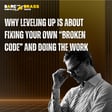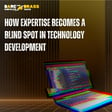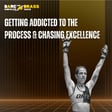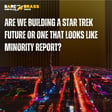
Thinking Like an Adversary, and How to Prepare for AI in Work and Life
Phil Dursey joined the show this week to cut through the hype and talked through what red teaming for AI means in mindset and practice.
The conversation reveals a fundamental problem: organizations are rushing to implement AI without understanding their own workflows. Executives are buying "the thing with the AI" expecting magic efficiency gains, but they've never mapped out basic business processes. You can't automate what you don't understand.
Phil's approach starts with the right question: "Are we using the right tool for the use case?"
We also talked about education and kids. Find out why Phil argues philosophy and humanities give you the biggest advantage when working with AI systems. It’s what he looks for in hiring, too. The ability to formulate good questions, understand context, and think clearly matters more than technical prowess.
And finally we touch on the job market. We're heading toward AI capabilities that will exceed human professionals in specific domains. The displacement won't be overnight, but it's coming.
If you're implementing AI in your organization, this episode should make you pause and ask harder questions. The technology is powerful, but power without thoughtful application is just expensive chaos.
Mentioned:
- Phil Dursey's guide, Red Teaming AI
- Hard Fork podcast segment on a student's AI workflow



















